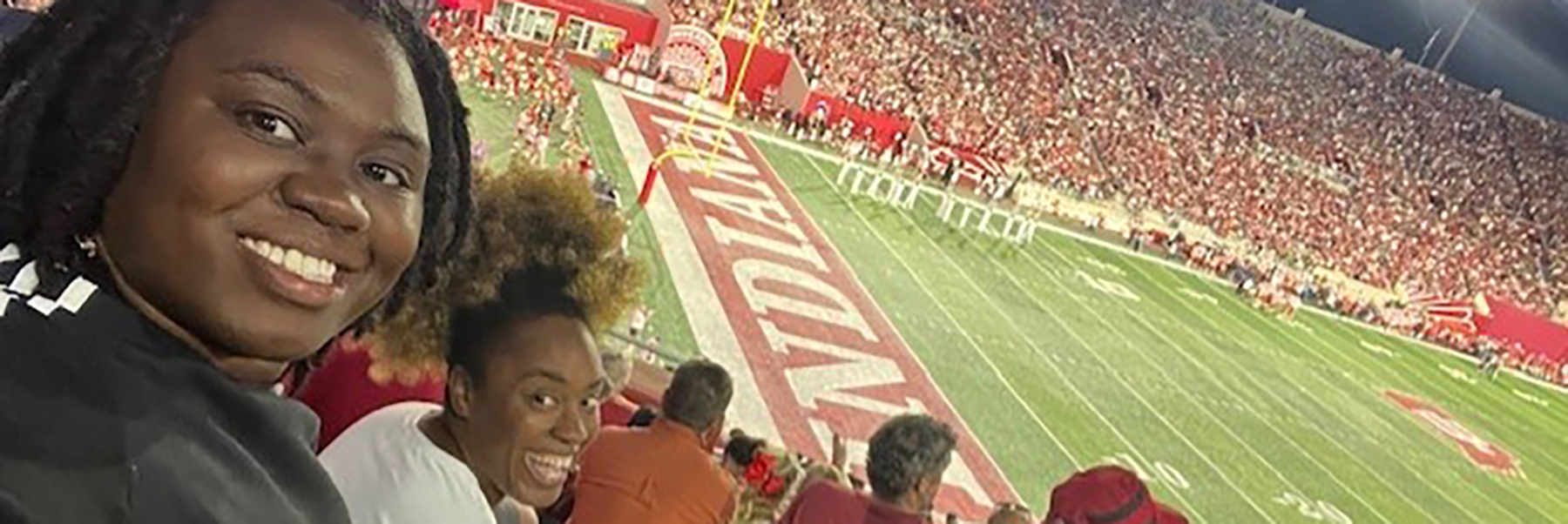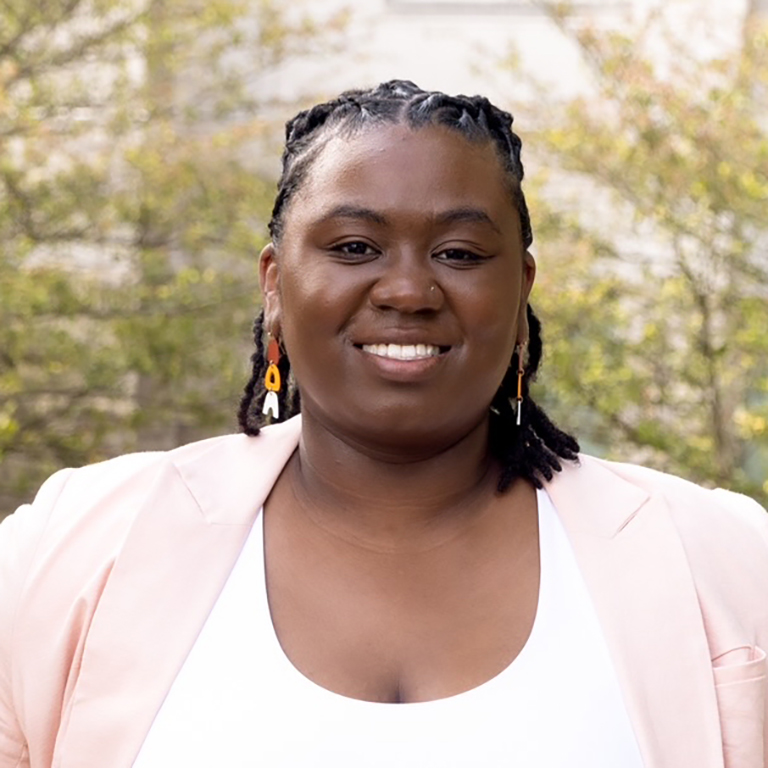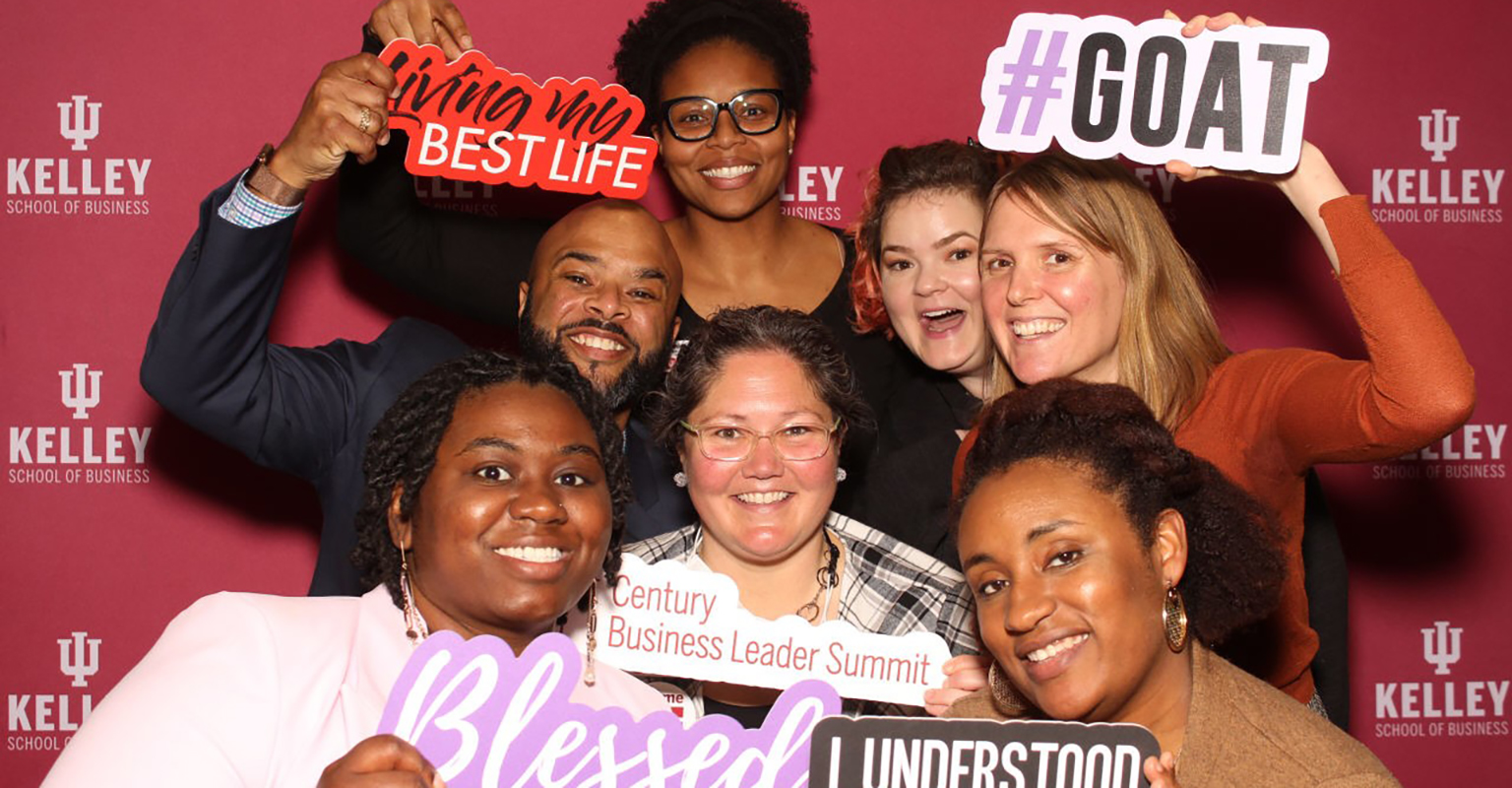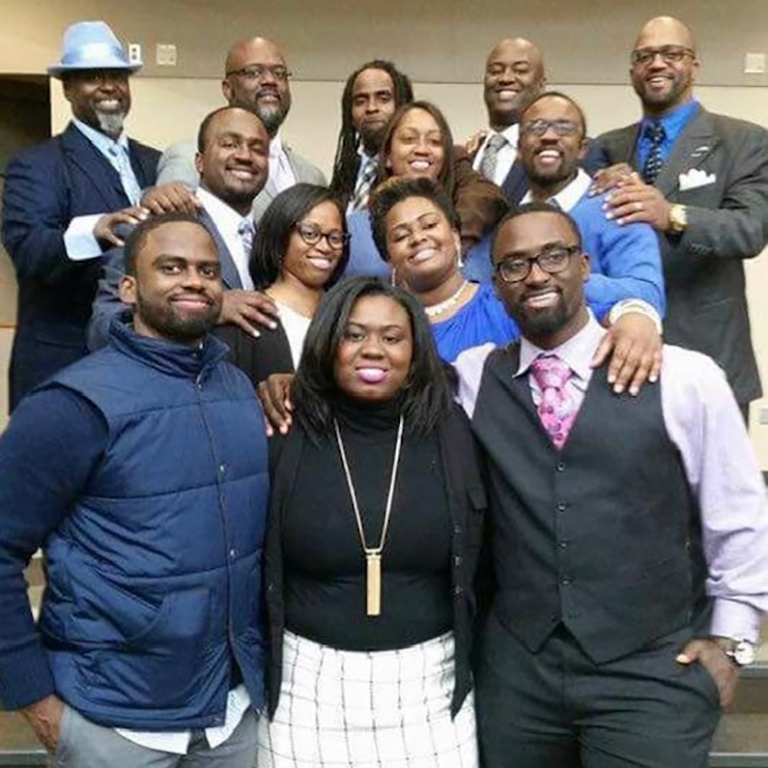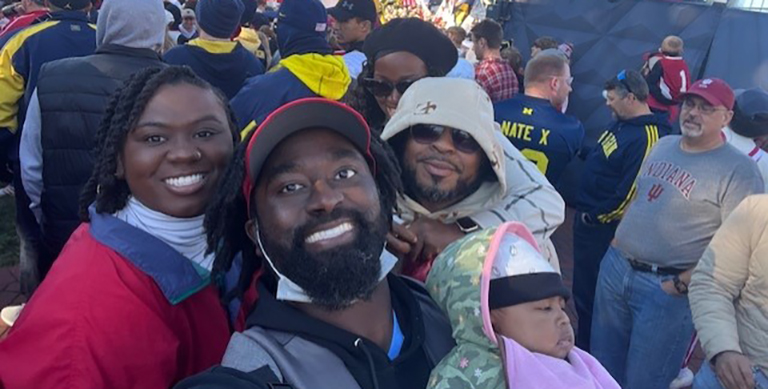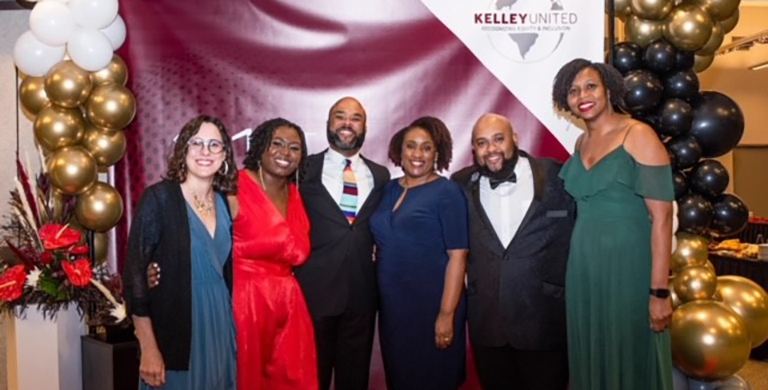TRIBE provides inclusion-focused cultural sensitivity education and healing-informed services to individuals, groups, and organizations. Most recently, Reese's company was hired as a consultant for the Bloomington Chamber of Commerce and as a community engagement coordinator with five top companies in Bloomington.
Reese earned a Master of Social Work from the IUPUI School of Social Work and a Bachelor of Science in Human Development and Family Studies from IU Bloomington, with IU certificates in nonprofit management from the IU Lilly Family School of Philanthropy. She is the fundraising chair for the annual Fort Wayne, Ind., Juneteenth celebration; the recently elected president of the Monroe County NAACP; a mayoral appointee to the Bloomington Board of Public Safety; and a committee member for the Women of IU Conference. Her multiple honors include the inaugural IU DEI Luminary Awardee from the IU Bloomington Diversity Equity Multi-Cultural Affairs; the 2022 IU Woman of the Year award from the Delta Sigma Theta Gamma Nu chapter; the 2020 Black Woman Leader Award from the City of Bloomington Black History Month; the Alpha Kappa Alpha Kappa Tau Chapter Black Girls Rock Woman of the Year award, the 2018 Zeta Phi Beta Alumna Community Award.
Q: What is your favorite part of your job at Kelley? What should people know about the work your office does that they might not know about?
A: I appreciate working with Kelley students and being an advocate for their needs, and also advising student groups outside of Kelley. I think people should know how much we collaborate outside of the school. I am fortunate to be around inspiring coworkers who are good at what they do. It's important to have a supervisor who believes in you, champions the team, and pulls the best from everyone. I am thankful that has been my experience here (shout out to Carmund White, associate director of undergraduate programs and director of the Kelley Office of Diversity Initiatives). We, of course, are not perfect, and I especially do not try to be — I am far too honest for that! It is important to keep a pulse on the climate of America and adjust programs and support accordingly. Huge shout to the undergraduate programs office and colleagues across Kelley!
Q: What inspired you to create TRIBE Consulting? Can you describe an example of how diversity training is structured for a company? How do you customize trainings for different groups?
A: I created TRIBE to have my own intellectual property and to support my community by sharing my skills, knowledge, and awareness of social movements through healing-informed services. In an initial consultation, I talk with a client to learn what they hope to achieve and what problems they are trying to solve. I then create a contract and timeline and begin work on qualitative and quantitative assessments, pulling in additional consultants as needed. I am honored to give back in this way. I complete my contracted term and then offer the opportunity to have follow-ups – though as a contracted consultant, it is my goal to work myself out of a consulting job. I don’t want to create dependents; I want to create sustainable practices.
The beauty I LOVE about this is that I get to pace myself, create real change within the company, and adjust to its growth opportunities. I’ve learned so much along the way. The main thing I have learned is that patience is truly important and so is being willing to meet folks where they are and not where you hope they are. I am sure I got that last part from Brené Brown or someone else.
Q: In an op-ed for The Inclusion Solution, you wrote about the “pet to threat” phenomenon (coined in 2013 by Kecia Thomas, now dean of the College of Arts and Sciences at the University of Alabama at Birmingham). Can you share more about this and your advice for people who see this kind of pattern emerging?
A: This was a dream come true. I am a huge fan of Mary Francis-Winters, a leader in the world of equity and inclusion. When she started her blog, my bucket list expanded to include publishing an essay about my experiences as a Black woman in academia on it. It is important for the IU Bloomington campus to take an honest look into how to support and retain talent — specifically Black women — at all levels and in top leadership positions. I wrote the piece because I see few Black women in top leadership positions at IU in general (and I am so thankful for those who are in leadership). To the women on the way: you will do amazing things. To those being overlooked: I hope you know that you are valued. We don’t have to be best friends to connect on what it's like to navigate IU as a Black woman employee. I also want to also share that Black women are multifaceted and have an abundance of expertise that might not be DEIBJ related. How do we unilaterally aspire to attract and retain Black women and promote the talent that we currently have? The op-ed was an opportunity to share strategies that I have learned along the way. My No. 1 piece of advice: be honest with where we are. I’d hate to be the spokesperson for all Black women and don't try to be, but I am not afraid to speak up about these issues. Students come to me and shine light on them, asking tough questions.
Q: What was it like being the youngest of 13 siblings (and share photos, please!)? How do you think your family helped shape the person you are today?
A: I am writing a book about my experience! Growing up in my family was as messy and complicated as any family and it was also magical. We have celebrations and get-togethers, moments when we cry, and those times we cannot stand each other. Our parents shaped us into community advocates to make sure our lives mattered. If our lives matter, then our neighbor's lives matter too. My father was heavily involved in Black organizing and my mom was a community giant – there is a parkway named after her and she was involved in every area of our life. Church was also huge in shaping us. Because of that (as I have learned through therapy), my parents gave us all of them … the worst, the best, the evolved.
I am blessed to continue the final act of love, which is grief. I grieve the loss of my mom and dad and welcome the opportunity to continue their legacy of loyalty. My siblings and I learned to navigate a world of the unknown by spending holidays together, creating a monthly newsletter so we know what is going on with each other, and weekly check-ins on Sundays. I can’t leave out my extended family aunts, uncles, grandparents, Godparents and host of cousins. Family has made me feel seen and safe and given me a sense of belonging. The Native American Blackfoot Nation’s hierarchy of needs really resonates with me. I, too, aspire to have a life that is managed well and self-actualized. Community and land are vital to me.
Q: What shows, books, podcasts, and music are you obsessed with right now that you recommend?
A: I am constantly learning and reading. Here’s what I recommend:
- Stanford Social Innovation Review (book series)
- Brown Enough by Christopher Rivas
- After the Rain: Gentle Reminders for Healing, Courage, and Self-Love by Alexandra Elle
- What Happened to You: Conversations on Trauma, Resilience, and Healing by Oprah Winfrey and Bruce D. Perry
- The 1619 Project: A New Origin Story by Nikole Hannah-Jones
- Woman Evolve podcast with Sarah Jakes Roberts
- Finding Me: A Memoir by Viola Davis
- Feeding the Soul (Because It's My Business): Finding Our Way to Joy, Love, and Freedom by Tabitha Brown
- Inclusive Conversations: Fostering Equity, Empathy, and Belonging across Differences by Mary Francis-Winters


